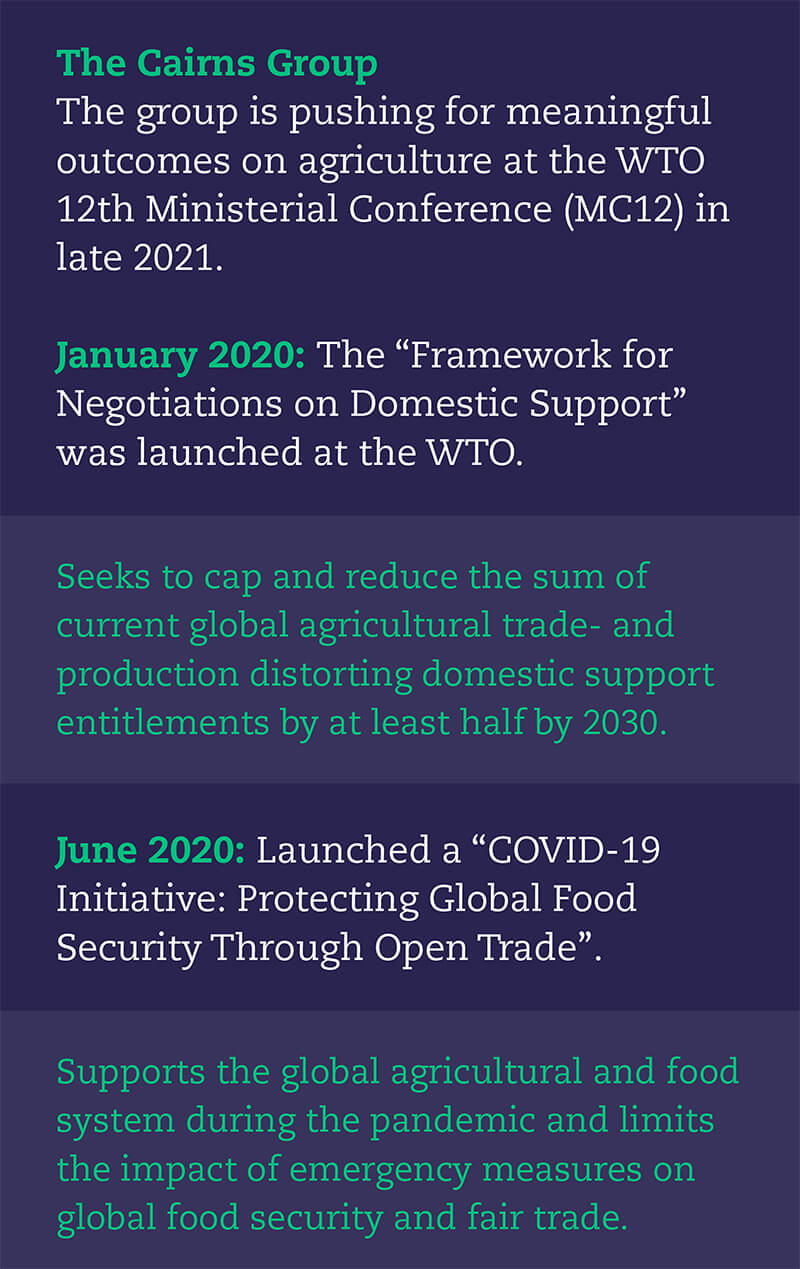Working Together Towards Global Food Security
By Andrew Goledzinowski, the Australian High Commissioner to Malaysia

Food security is achieved when all have access to affordable, sufficient, nutritious food at all times.
Access to safe and nutritious food has never been more important. But unfortunately, the COVID-19 pandemic has added to the global problems of hunger and malnutrition.

Economic lockdowns have significantly impacted government revenues. Cooperating to keep agricultural markets open has helped us avoid some of the costly measures witnessed during the 2007-08 food price crisis. Trade can help realise economic efficiencies.
Recently, there has been an increased focus on reducing Malaysia’s reliance on agriculture imports and boosting its self-sufficiency. However, it is important to differentiate between self-sufficiency and food security.
Being self-sufficient does not guarantee food security. Domestic production will not guarantee people have access to affordable and nutritious food or safeguard against poor seasons and low harvests. Food security is achieved when all have access to affordable, sufficient, nutritious food.
Countries that do well in food security have sophisticated supply chains, modern transport infrastructure, and transparent and predictable regulatory environments. Supporters of self-sufficiency will argue that supply chain disruptions due to the current pandemic have made import-dependant countries more vulnerable, so reliance on imports must be reduced.
But we haven’t witnessed any ongoing significant supply shocks due to COVID-19. Yes, there were a few early disruptions as countries initially locked down, but these were quickly resolved.
In countries with long-running self-sufficiency programmes, food affordability has been undermined. For example, the domestic rice price in Indonesia has historically been 30 per cent higher than in the global market.
Food security will require all countries to work together. By 2050, the global population will reach over nine billion people. The world will need to produce much more food to meet demand with less land, less water and less environmental impact. This is not the time to introduce policies that limit imports, stifle competition and protect unsustainable local industries. That often results in inefficient practices, a limit to innovation and slow productivity improvements. They increase costs to the consumer and, in the long run, damage the environment.

COVID-19 has highlighted that we cannot use government revenue on such inefficient measures. In Australia, successive governments have moved away from subsidies and other trade- and production-distorting support and our farmers are now exposed to domestic and international competition.
Thanks to reforms and investment in research and innovation, Australian agriculture has witnessed consistent productivity growth over the last 30 years, which helped global food security.
Further liberalisation and agricultural trade reform are crucial to ensure global food security by reducing barriers to the movement of food around the world. We will continue to pursue trade liberalisation and reform through the World Trade Organisation (WTO) and free trade agreements, such as the Regional Comprehensive Economic Partnership that Australia, Malaysia and 13 other countries signed on Nov 15, 2020. As members of the Cairns Group in the WTO, Australia and Malaysia have pushed for liberalisation and reform of global trade in agriculture for over three decades and continue to do so.


The economic chaos due to the pandemic threatens economic access and physical availability of food.
Global entitlements under the WTO rules to use certain forms of distortive support reached US$772 billion in 2016 — more than double Malaysia’s GDP in the same year. They could reach over US$2 trillion by 2030 if the rules remain unchecked.
As a result, there was a renewed push in WTO for the agreement not to impose export restrictions on foodstuffs purchased for non-commercial humanitarian purposes by the World Food Programme. This remains a viable outcome for MC12, along with outcomes on other important issues like domestic support.
Both efforts demonstrate Australia and Malaysia’s positive contribution to global food security and the need to continue to work together well into the future.





